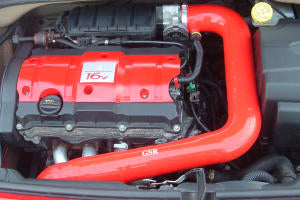Greetings to everyone!
It’s November and so I am writing our second blog article. I started a draft on an overview of various things, but a few days ago, I saw a very nice air filter test video, on which I wanted to comment on.
The video in question is this: https://www.youtube.com/watch?v=M3Q3ogj0HL4
The author is doing a dyno test of various filters on two completely different cars: a naturally aspirated BMW M3 and a turbocharged diesel Skoda Octavia. The result: there were no gains (actually power loss) from any of the aftermarket setups on the N/A M3, but there were decent gains from all setups tested on the Octavia.
The video shows something that we’ve been talking and explaining for many years: a simple air filter replacement on a naturally aspirated engine will never work. Never. It’s because N/A engines need certain intake (and exhaust) restrictions to have better torque and power figures. The popular term TUNING actually originated from times when N/A engines were fine tuned to not only produce maximum power, but also to produce it at the right RPMs in order to utilize it more efficiently. In order to do it, various modifications like head porting, polishing, intake and exhaust tuning etc. were done. INTAKE? That’s right. An intake can be tuned (not upgraded) by carefully designing its length and size, often making it various size at different areas. By carefully choosing the right dimensions, you can tune the intake to your needs. You can either make the engine produce more torque, or more power. Or maybe a little of both. You can also choose the powerband for the gains to take place – perhaps more at mid RPM’s for a better slalom car, or have a lag in mid’s, but make the best at top end of better performance at a drag strip? This is why we carefully developed all of our intakes for N/A cars to often be long silicone intake piping. This is what we were best known for.
Unfortunately times change and most of modern engines, diesel or petrol, have a turbocharger. It’s for efficiency and for better emissions. Even F1 rule book made all teams to do it long time ago and kill of one of my personal favorite engines – the N/A V10. Turbochargers act as a hoover (or vacuum cleaner, depending where you live 😊 ), which sucks air in and forces it to your engine. It sucks at such a huge pressure, that any restriction makes it more difficult for the turbocharger to do it’s work. Therefore it’s ideal to have no restriction (or in our case) filter before it at all. But we can’t do this on our daily cars, so we have to compromise, and use a filter anyway. That’s were a carefully designed cold air intake system plays it’s role – to position the filter in the most suitable area and to minimize possible flow restrictions.
Another topic that video has touched was washable air filters. Our opinion was always that it is a marketing trick and that it’s best to just replace the filter, instead of washing it. Exactly what this video proved. However, when you buy a 100 Eur filter, you really don’t want to throw it away, right? That’s why our kits use unbranded, same performance level filters for a fraction of their cost. So when needed, you can just throw away the used one and buy a replacement one for an acceptable price.
I think it’s enough of educational material for a Sunday morning, so I’m about to wrap this article up. But before that, I’d like to do a small update on what happened since our last blog entry:
-
We’ve received over 2 000 Facebook page likes! It’s a small number for big companies, but it really means a lot to us! Thank you to those who like our page! If you haven’t, you can always do it here: https://www.facebook.com/GSRinductionkit/
-
No essential progress has been done so far on both new intake system developments (Giulia and 159).
-
Manufacturing is running up to date with no order delays, despite the partial mass lockdown, which was recently introduced in our country due to rapidly rising COVID-19 cases.
That’s it for this time. Follow our GSR Induction kits Facebook page for our new articles and updates!
Stay tuned!

